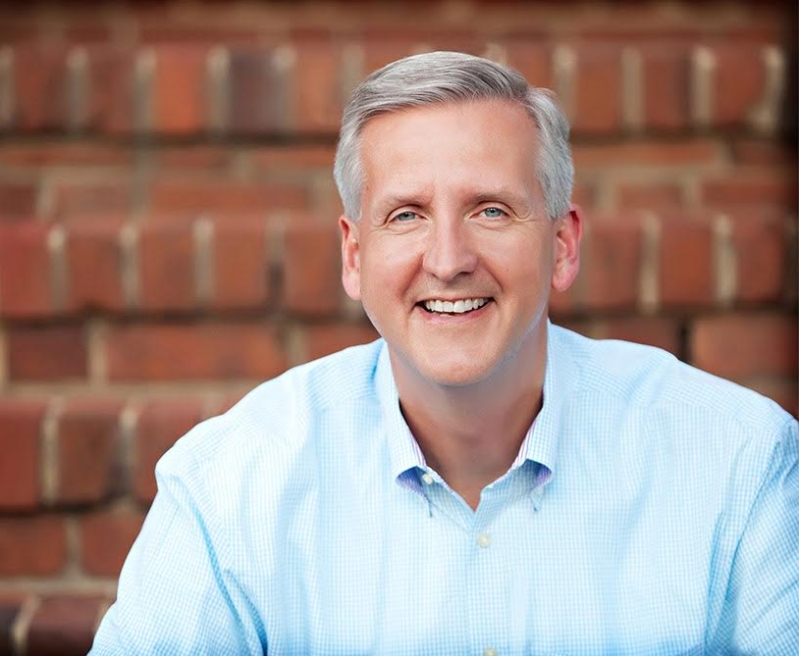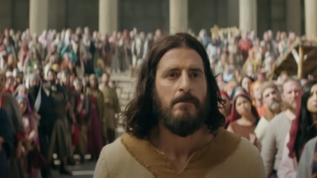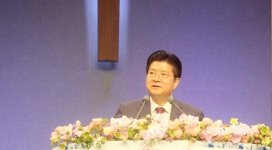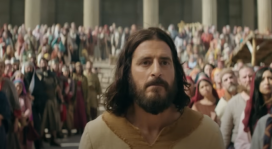
Pro-basketball-player-turned-pastor David Chadwick is concerned about the way our culture defines greatness.
As a former member of the 1969 NCAA Final Four Basketball Team who played for legendary College Basketball Hall of Famer Coach Dean Smith at UNC-Chapel Hill from 1968-71, Chadwick is all too familiar with the damaging effects of buying into the world's idea of success.
"When I played basketball and I would make headlines and get a lot of attention, pride would fill my heart and make me feel like I was bullet proof," he shared in an exclusive interview with The Gospel Herald. "When you place yourself on those pedestals and accept the world's applause, you're very vulnerable to a heavy fall. That's what happened in my life. Once basketball was no longer a part of my life and that god was eliminated from me, I didn't know where to turn. That time of pride in my own efforts only set me up for the fall that soon happened thereafter."
Thankfully, God had bigger plans for Chadwick's life: "The Lord met me in my desperation, and that's when I discovered His grace, mercy and kindness," he said. "The best call of all was to play on God's team."
Today, Chadwick has MDiv and DMin degrees from Columbia Theological Seminary and pastors Forest Hill Church in Charlotte, North Carolina. In his latest book, From Superficial To Significant: What It Means To Become Great In God's Eyes, Chadwick uses stories from his time as a pro-basketball player to explore issues of faith, redemption, sin and grace.
"Coach Smith taught about the fundamentals being so important in basketball, and how practicing them over and over again is what leads to a successful individual and team," Chadwick told GH. "Similarly, throughout the Bible, there are fundamentals in the Christian faith that define greatness from God's standpoint."
The book is available for purchase here. Below is the exclusive interview with David Chadwick.
GH: Tell us about your background as a pro basketball player and how coach Dean Smith influenced you.
DC: I had the privilege of playing for Coach Dean Smith, who is considered one of the world's greatest coaches ever; he won two national championships at UNC and an Olympic gold medal. I played three years in the European professional league after playing for Coach Smith, and then I felt God's call to the ministry. Oftentimes, I reflect on how Coach Smith taught me about how the team is more important than the individual; how it's important that you persevere through difficult times; how you need to sacrifice for the sake of the whole team. All of those great principles he taught me are applicable to life, ministry, and biblical truth. He had a profound impact on my life and I'm greatly thankful to God for giving me the opportunity of playing under him.
GH: Where did the inspiration for this book come from?
DC: As a minister of a local church for 37 years in Charlotte NC - and I've seen it grow from 100 members to now over 6,000 - I've been very concerned with how our culture defines greatness. In many ways, we've become like world has in sporting events; we have the top 25 college football or basketball teams - that's where we've gone with the church. Far too often, we define greatness in numbers instead of defining greatness as God defines it, and that is in faithfulness.
Through this book, I want readers to see the superficiality of the Christian faith in our culture that many of us have fallen prey to; a "prosperity gospel" that believes it's all about us. That's not what the gospel is all about; it's all about the Lord. I want people to move from the superficiality of the spirituality of so many Christians in America to a depth of discipling under the Lord that will allow them to make disciples of other people. The Lord's call upon our lives is not just information, it's transformation.
GH: In your book, you lay out ten fundamentals in the Christian faith that define greatness from God's standpoint. Can you touch upon a few of these fundamentals and their importance in advancing the kingdom of God?
DC: Absolutely. Everything in the book is built on the gospel, because it does begin there.
The first one is the "Great Exchange" which is basically the gospel, it's the great trade that God has made with us; we give Him our sinfulness and unrighteousness, and He exchanges to us His perfect righteousness in Jesus and what He did on the cross.
Another one would be the "Great Reversal" - the last will be first and the first will be last. God abhors pride; that's what makes people last in His eyes. But, He thinks people are great when we choose humility, when we choose to acknowledge that everything we have comes as a free gift from Him.
Finally, the "Great Commandment," which I divided into two chapters, the first one being that we're great in God's eyes when we learn to place Him first. The second chapter is that we love God by loving that which He loves the most, which is our neighbor as ourselves. When we love God and love our neighbor, we are great in God's sight.
GH: What are some dangers associated with accepting the world's definition of greatness?
DC: It's a shallow understanding of greatness. The world says "I'm great when I posses, when I have have, when I hoard, when I succeed and I get all that self-exaltation." That's the root to separation from God, the unwillingness to admit that I'm a sinner. It's saying, "I'm strong", so you're never weak to understand His sufficiency. When you realize true greatness in His eyes, that's when you say, "I'm nothing, He's everything." Then you can live as a servant, not a superstar. That's when you can ready yourself to hear the most precious words that God could ever speak to you, and that is - "Well done, my good and faithful servant."
GH: What's the difference between conviction and condemnation? Why is it important to be aware of the differences between these two voices?
DC: I contend in my book that condemnation is rooted in some kind of law that we feel like we've got to live up to, and when we don't live up to it, we feel the condemnation of the Evil One. That's not a good place to live. Condemnation is the Evil One's cheap weapon to cripple our souls and to paralyze our lives and make us ineffective for living out grace in the world.
Conviction is different, it's a gift of the Holy Spirit. Conviction doesn't paralyze us; it corrects us to allow us to live faithfully. Condemnation affects the person; it says "You're unworthy." Conviction says, "Your behavior is unworthy, but you as a person are still loved." I think understanding the difference between those two things allows us to live greatly in the sight of God.
GH: You talk a lot about the damaging effects of pride. How can one overcome pride?
DC: The first thing to do is, when your feet hit the floor every morning, begin the day with this prayer: "Thank you, Lord, for another day. It's a total gift from you." Then, throughout the day think about your next breath, the food you eat, the clothes on your back, the car you drive, the family and friends - all of those are gifts from God. When you realize everything in life is a gift, you operate in humility and you live each day with a recognition of that giftedness.
Also, apologize to your spouse when you offend them - even though it's not easy. Before every meal, bow your head and give thanks to God and say, "I recognize that everything I have before me is a gift from You." When you continually practice these tips, they become habit. By expressing humility, you defeat the poison of pride.







